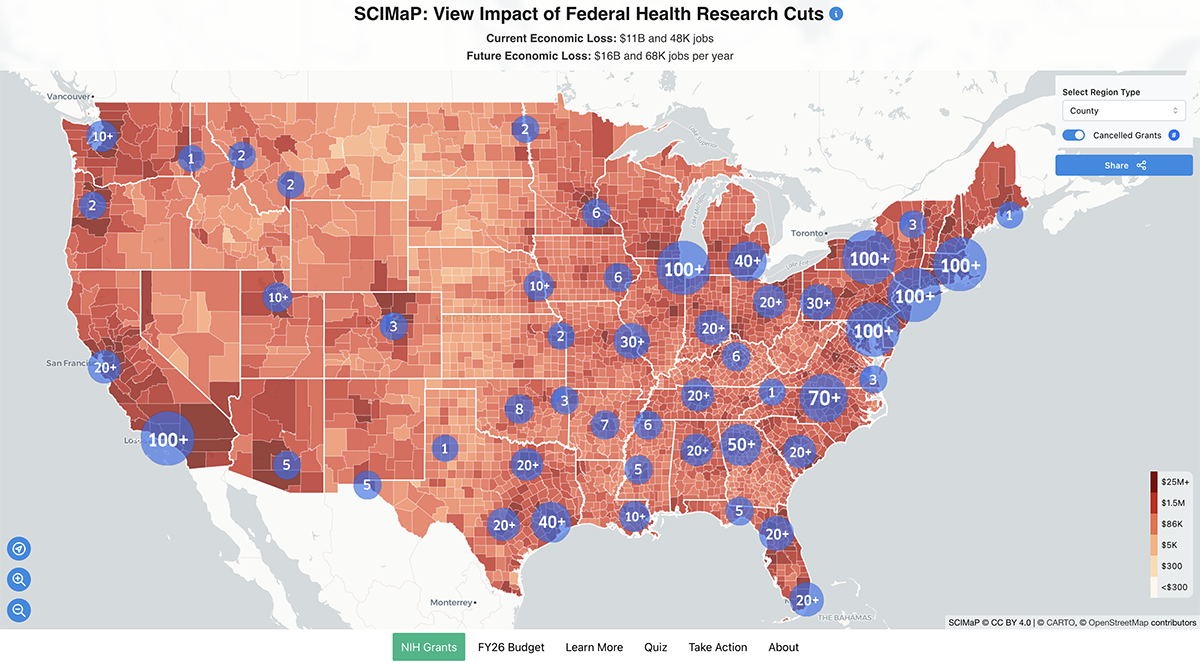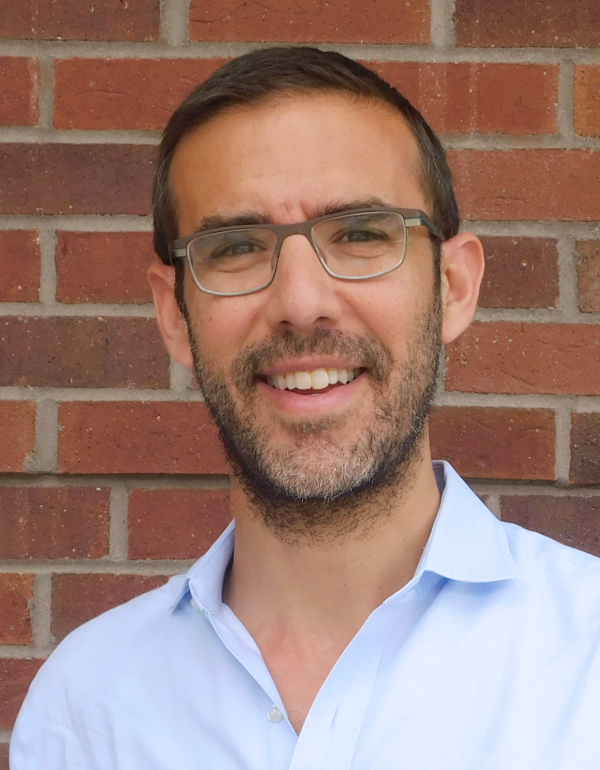|
Science on Tap
A monthly lecture series at UMD that explores the latest discoveries in science and technology in a relaxed atmosphere with food and drink
"Science Matters: Confronting the Impacts of Federal Cuts to Research on Communities Nationwide"


Joshua S. Weitz
University of Maryland Department of Biology and Institute for Health Computing
Tuesday, November 18, 2025
Doors open at 6 p.m.
Lecture begins at 6:30 p.m.
Ledo Pizza
4509 Knox Rd.
College Park, MD 20740
Paid parking is available in the attached city garage, which guests can enter on Yale Avenue. Guests may enter the event venue via the Ledo entrance on the corner of Knox Road and Yale Avenue.
Food and beverages will be available for purchase at the event.
If you have any questions about attending this event, including disability accommodations, please contact Rena Surana-Nirula at rena@umd.edu or 301-405-6563.
Subscribe to Receive Science on Tap Emails
About the Talk
Science impacts more than scientists. There is power in what we do. Power to discover, transform, build and serve the public. But power can also do other things: instill fear, generate anger and become a target for attacks.
For decades, America has led the world in science and biomedical research. Federal support of research taking place at universities nationwide has been an essential component of our innovation economy––catalyzing economic activity and job growth and advancing life-saving cures, diagnostics and therapies. But this leadership is under threat. This past year, the administration terminated billions of dollars in federally supported science and medical research, proposed changes that would slash infrastructure support required to keep the lights on in laboratories, removed scientific experts from review panels, fired experts across the portfolio of federally funded research institutes, and proposes to go further by slashing fiscal year 2026 support of research at NIH, NSF, the CDC and beyond, often by 50% or more.
In this talk, Dr. Weitz will discuss ongoing efforts by scientists to confront threats to science and foster a renewed commitment to federal investment in basic and translational research. Drawing upon his role as co-founder of the Science and Community Impacts Mapping Project, Weitz will describe how interdisciplinary teams have coalesced to confront federal cuts and share evidence that communicating how science serves local communities can help change attitudes and motivate action taking.
About the Speaker
Joshua S. Weitz is a Professor of Biology at the University of Maryland, College Park, where he holds the Clark Leadership Chair in Data Analytics, has an affiliate appointment in the Department of Physics, and is a faculty member of the University of Maryland Institute for Health Computing in North Bethesda. Weitz received his Ph.D. in physics from MIT in 2003, was a NSF Postdoctoral Fellow in Ecology and Evolutionary Biology at Princeton University from 2003-06, and previously served as faculty in biological sciences at Georgia Tech from 2007-23 where he founded the Interdisciplinary Graduate Program in Quantitative Biosciences. Weitz is a Simons Foundation Investigator in Theoretical Physics of Living Systems, a Fellow of the American Association for the Advancement of Science, a Fellow of the American Academy of Microbiology, and the co-chief editor of the Journal of Theoretical Biology.
Weitz leads a multidisciplinary research team whose central goal is to understand how viruses transform human and environmental health. His research group works on a range of problems including improving the clinical translation of phage therapy, assessing the interplay between human behavior and infectious disease, and quantifying the impacts of viruses on ecosystem functioning. He is an author of more than 170 peer-reviewed publications and three books, including an award-winning monograph on "Quantitative Viral Ecology" (Princeton University Press, 2015), a textbook and accompanying computational guides on "Quantitative Biosciences" (Princeton University Press, 2024), and his most recent, "Asymptomatic: The Silent Spread of COVID-19 and the Future of Pandemics" (JHU Press, 2024).
Weitz and colleagues are also committed to public-facing initiatives and supporting the next generation of scientists. In 2020, Weitz co-led the development of a COVID-19 risk assessment dashboard that was used by more than 16 million individuals to generate more than 60 million estimates of indoor transmission risk, predominantly in advance of the widespread availability of vaccines, supported in part through grants from the CDC and the Rockefeller Foundation. In early 2025, Weitz co-founded the Science and Community Impacts Mapping Project, a multi-disciplinary and multi-institutional effort to assess, visualize and communicate the impacts of federal cuts to science on communities nationwide, funded in part by a grant from Open Philanthropy.
If you have any questions about attending this event, including disability accommodations, please contact Rena Surana-Nirula at rena@umd.edu or 301-405-6563. |




